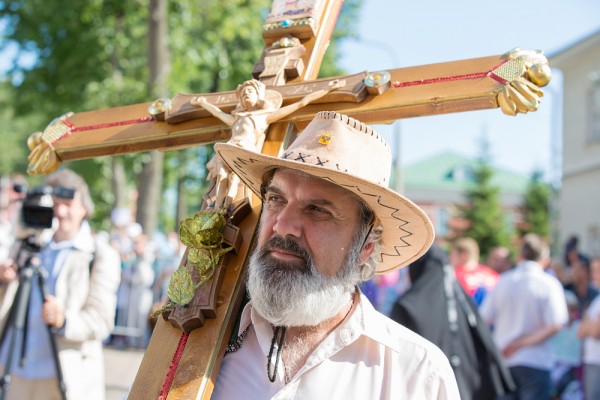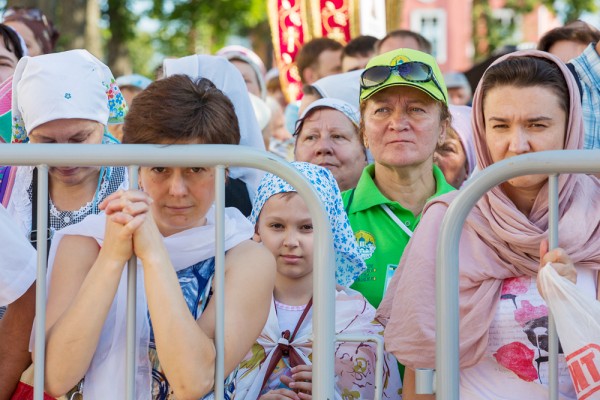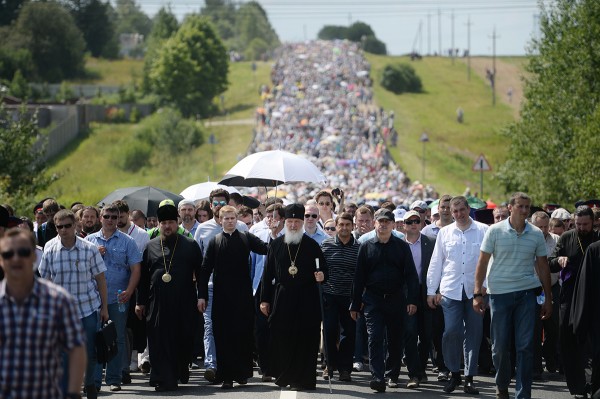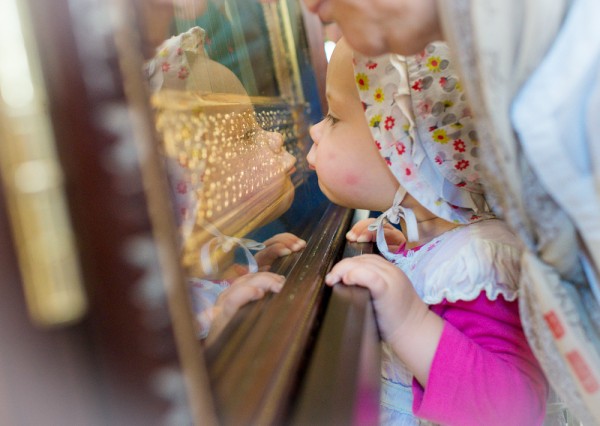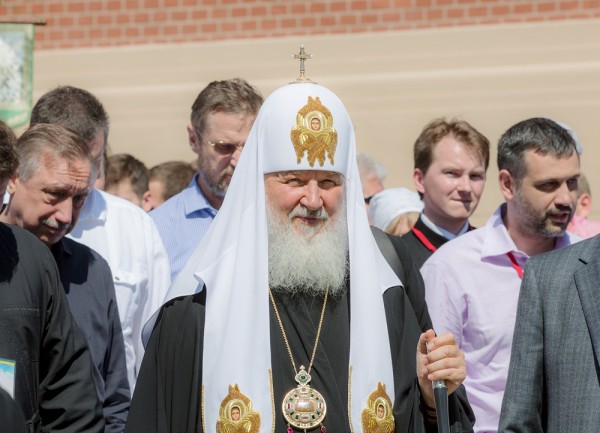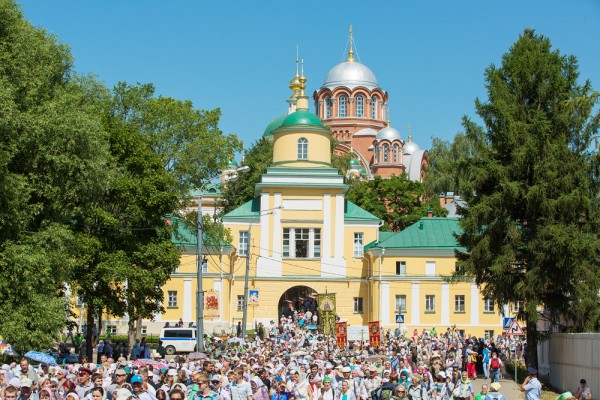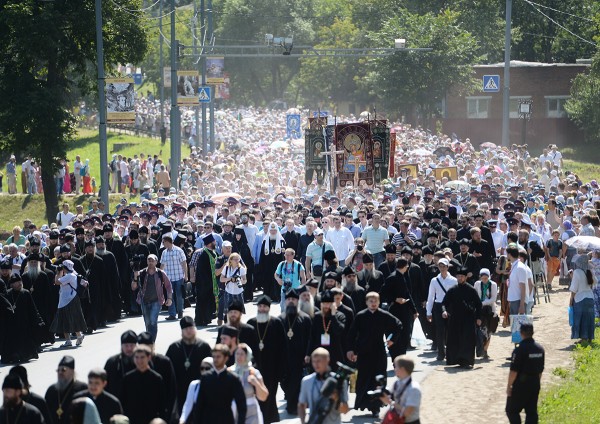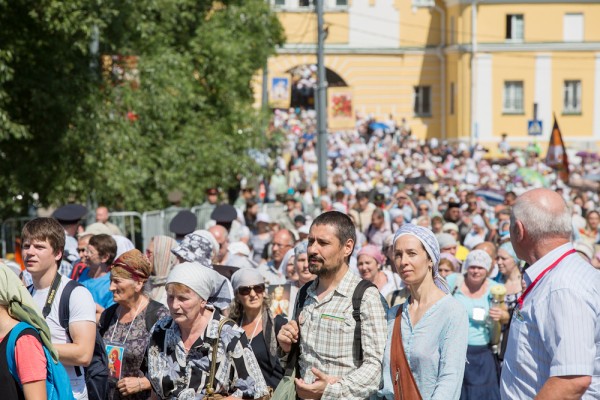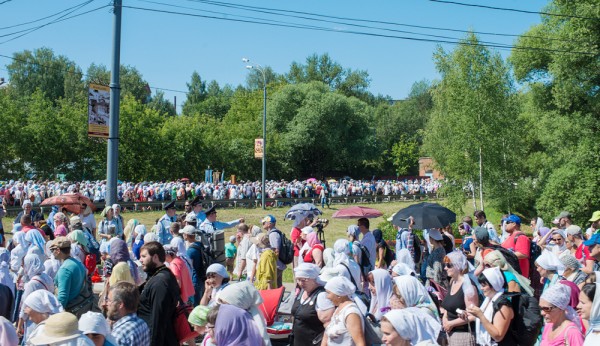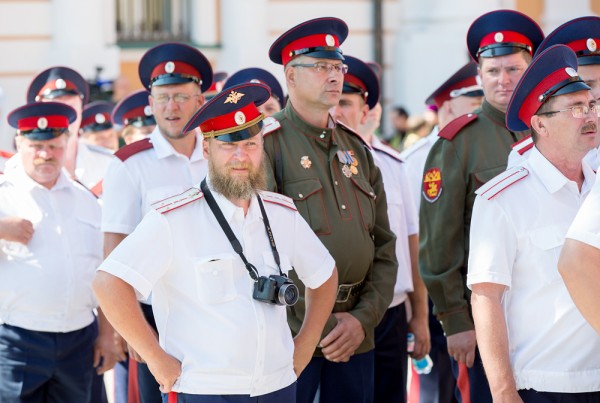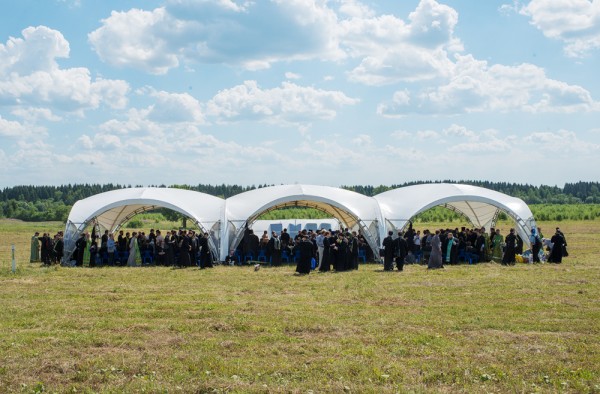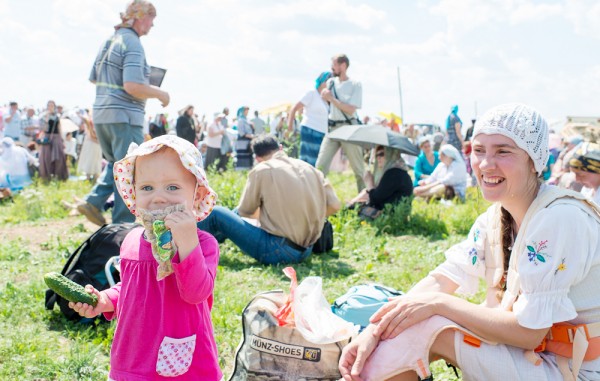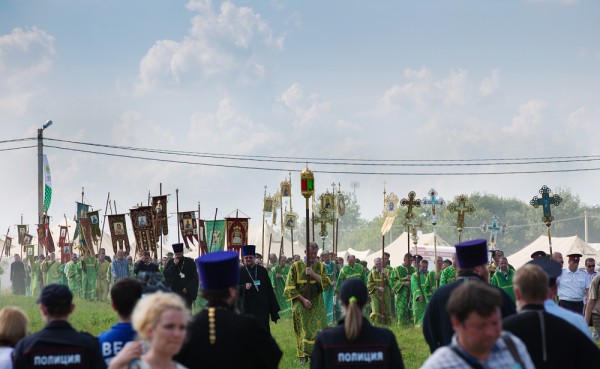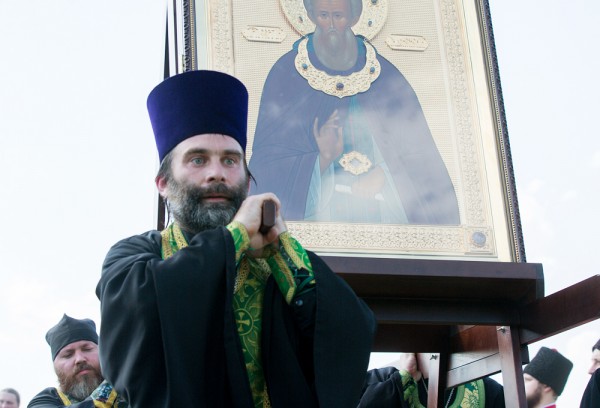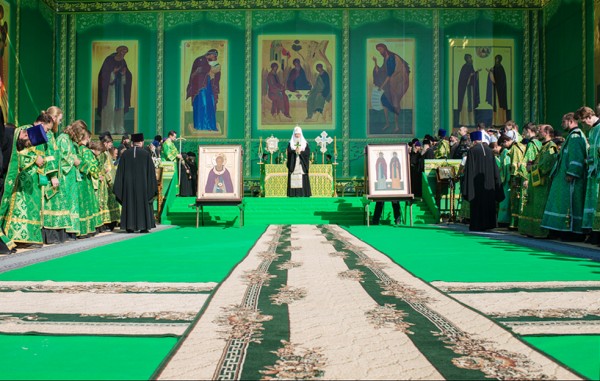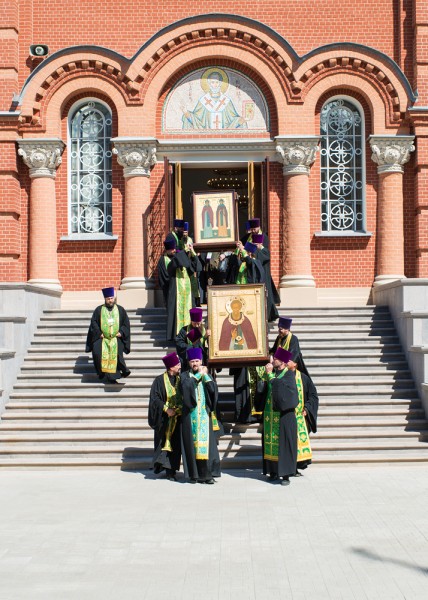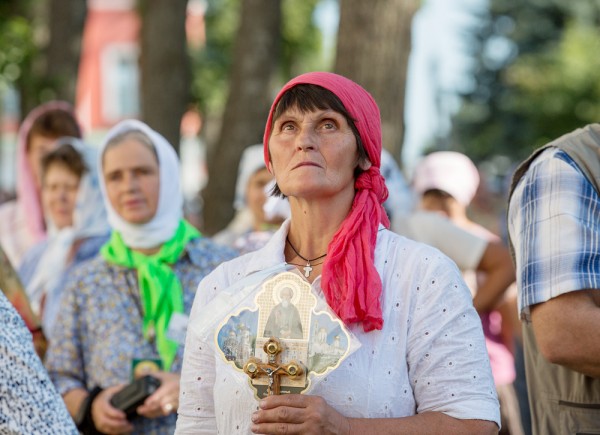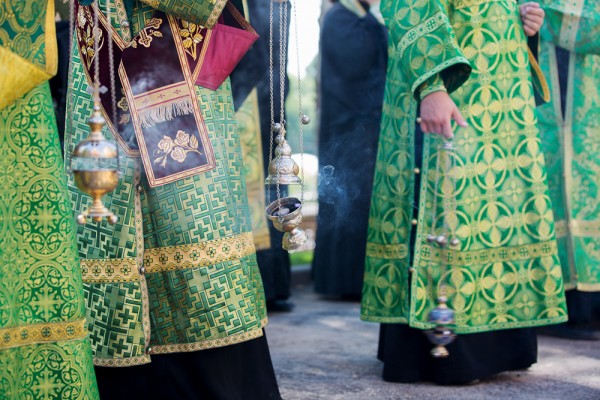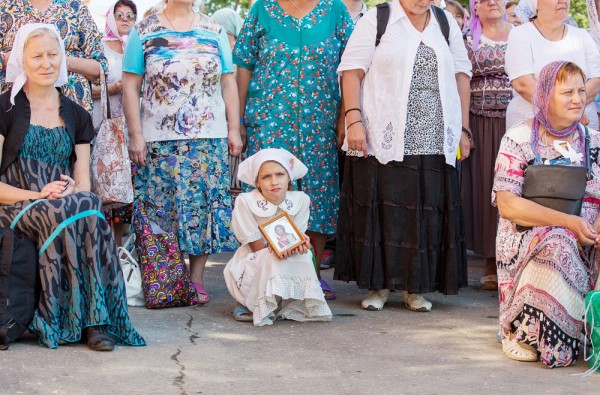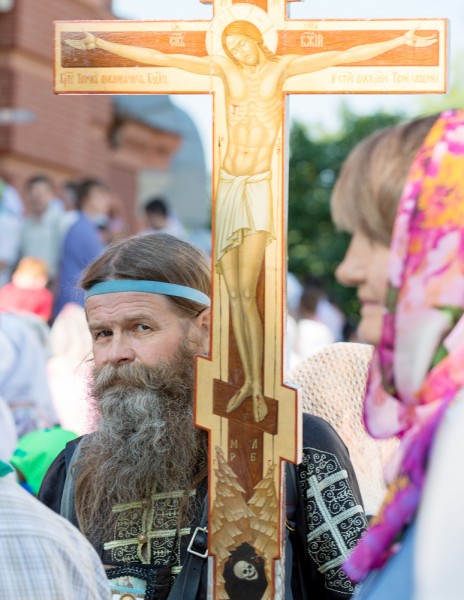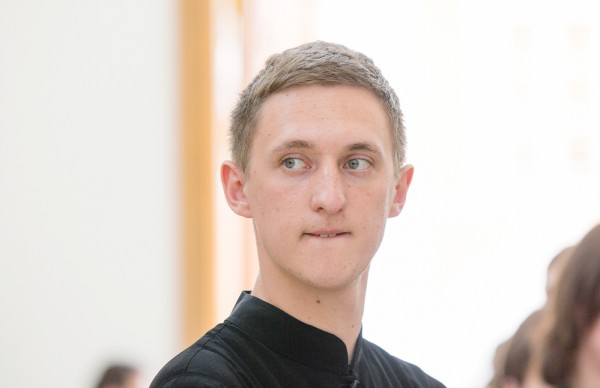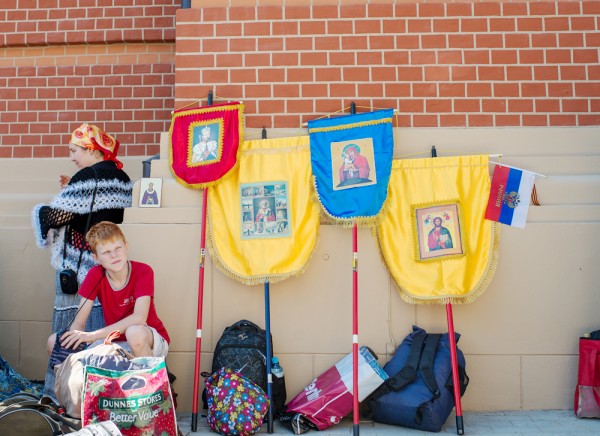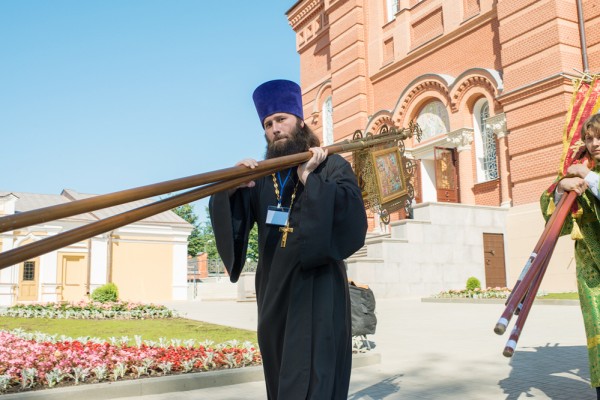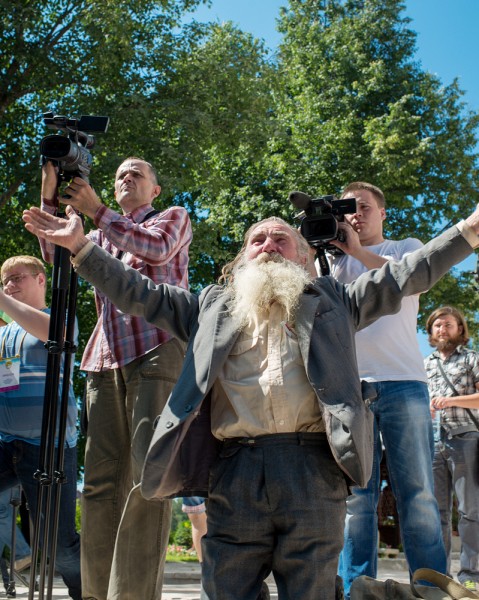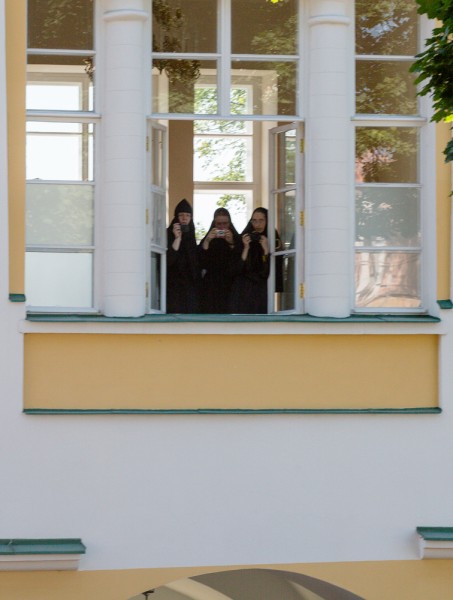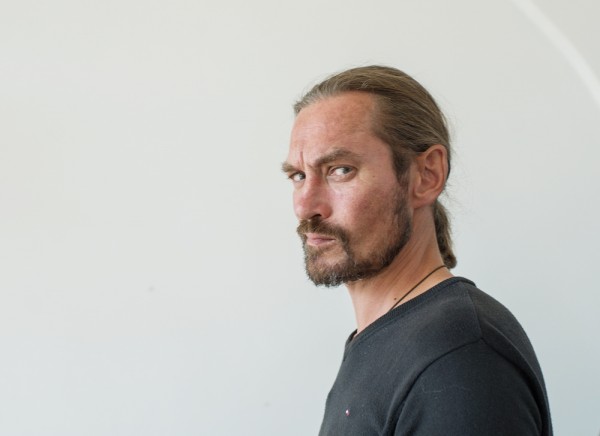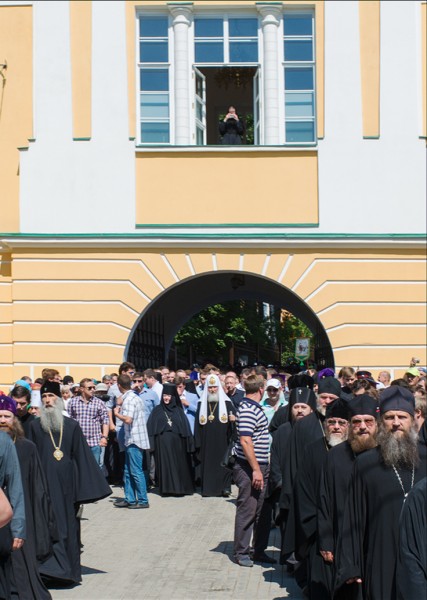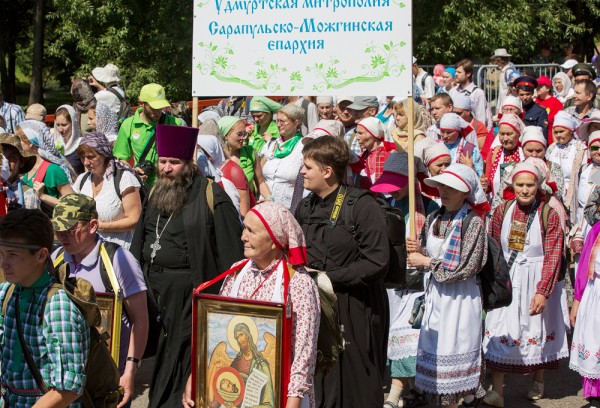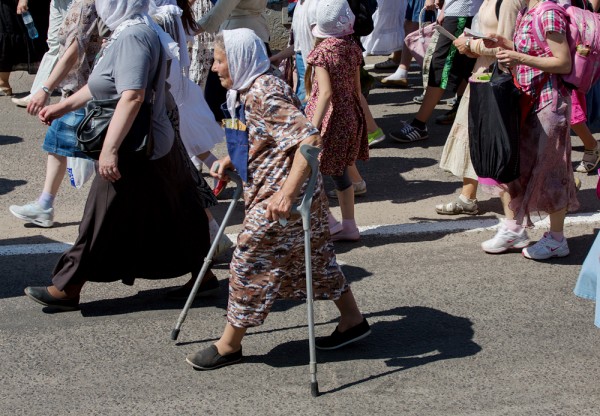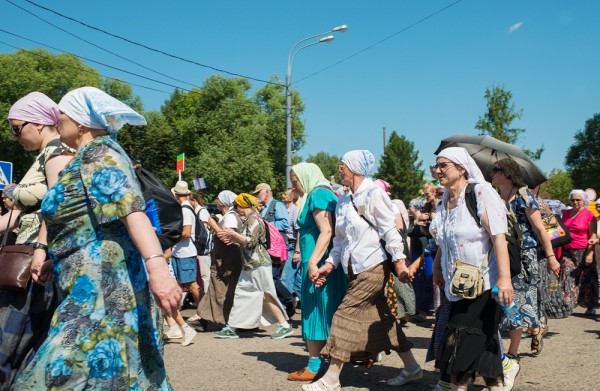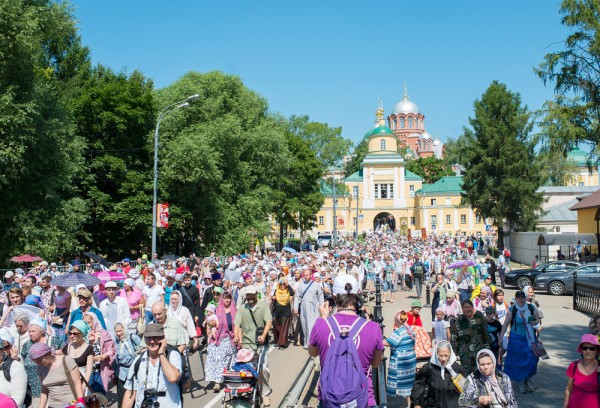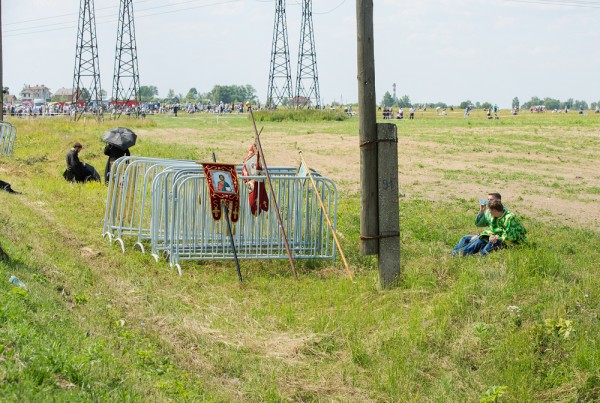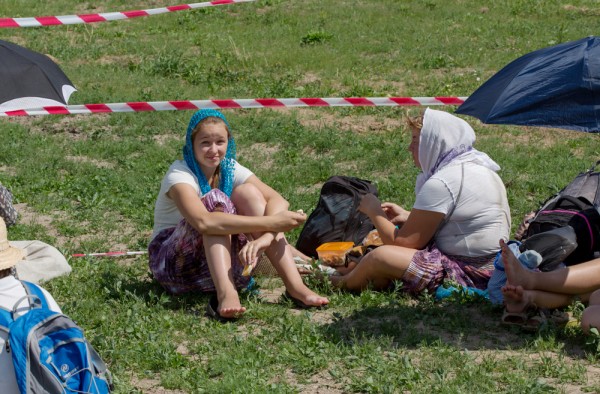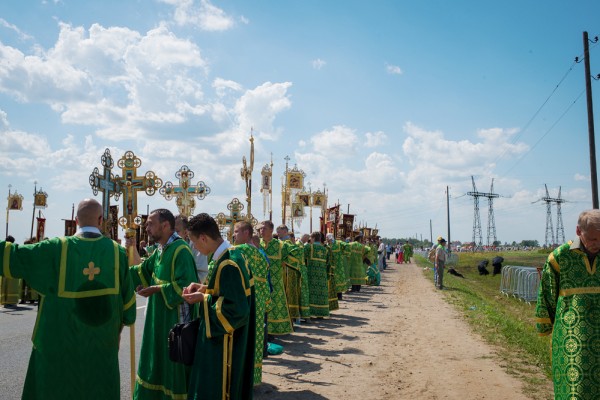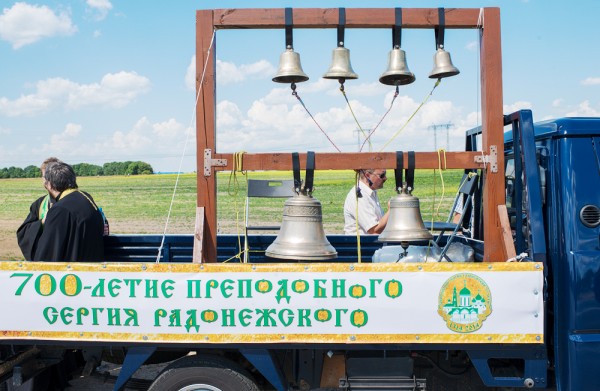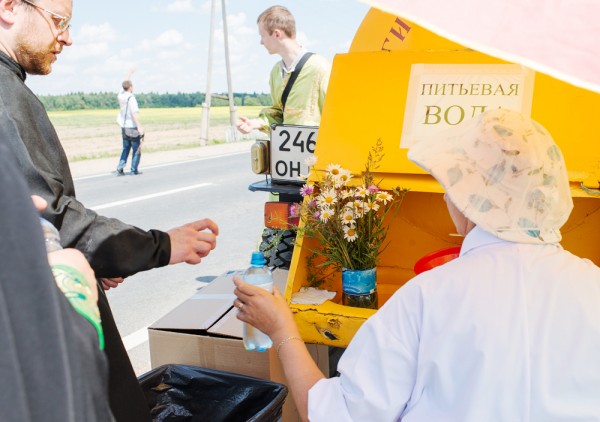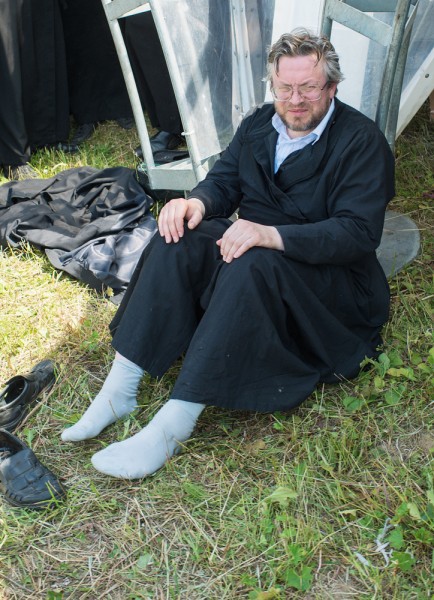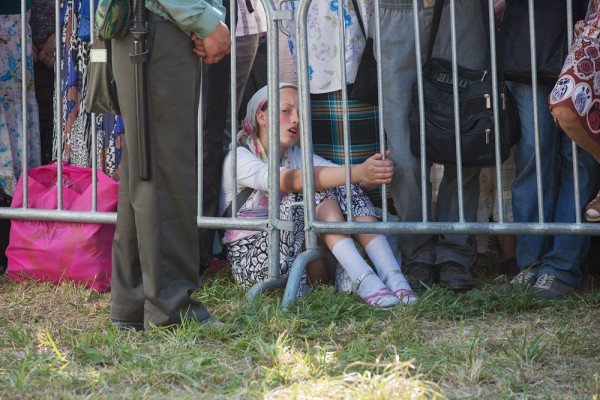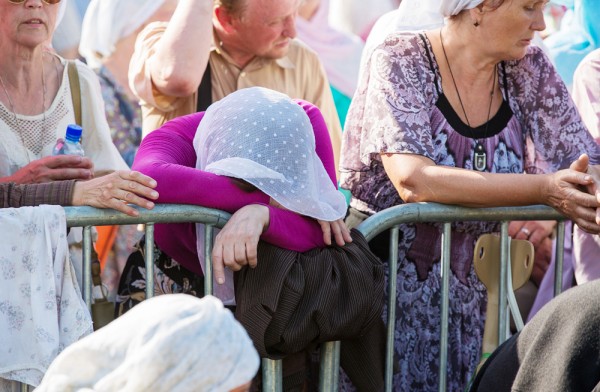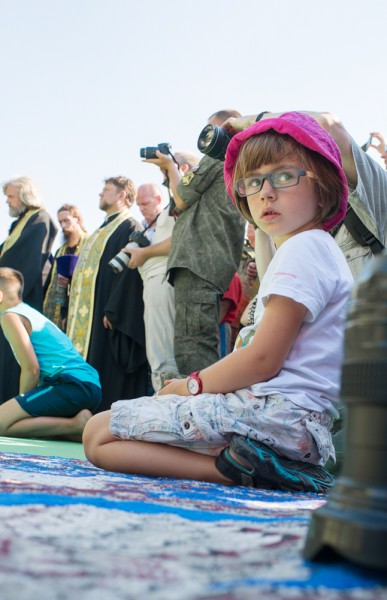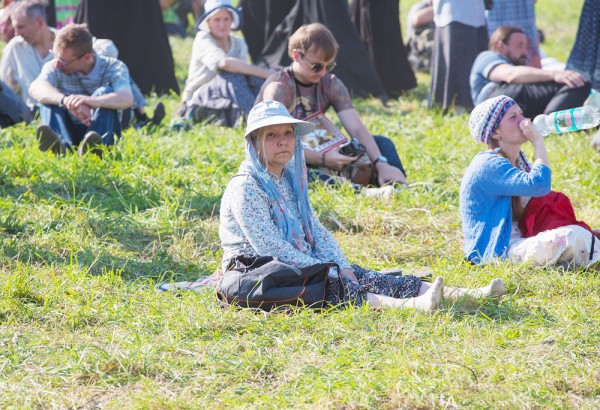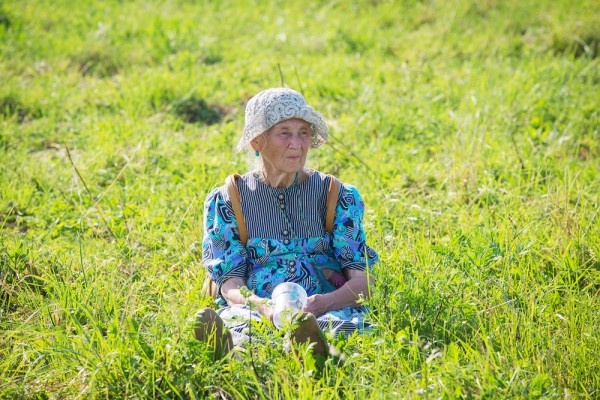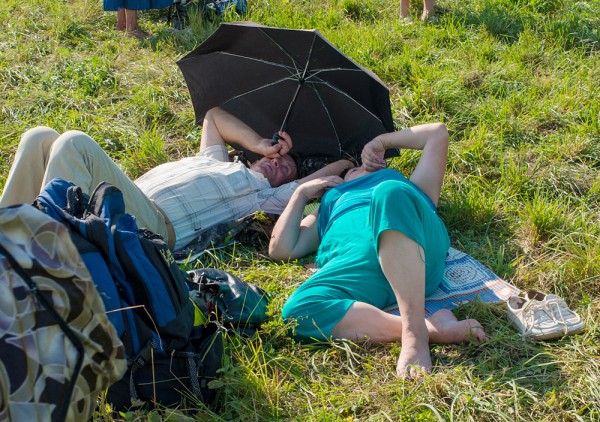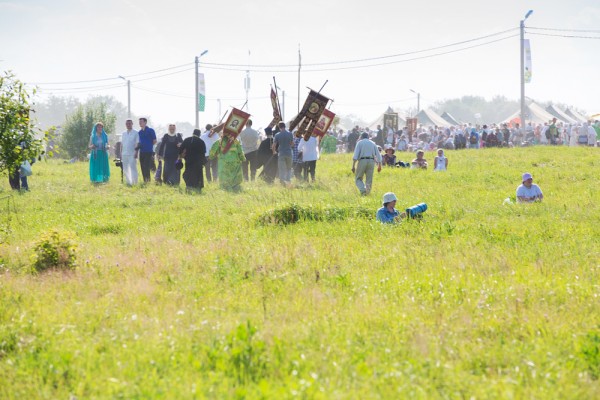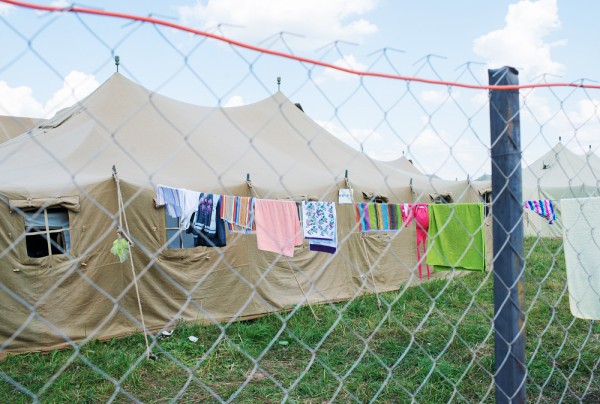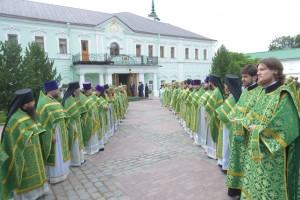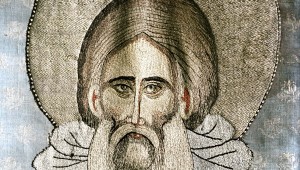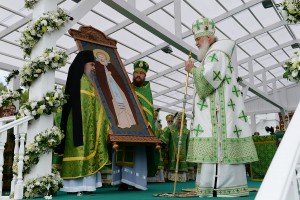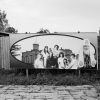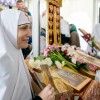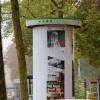At seven in the morning, traffic was blocked in the cities of Sergiev Posad and Khotkovo. Pilgrims from all over the country – Kazakhstan, Udmurtia, Chuvashia, Vologda, Penza, and the Moscow region – were taken to the places of celebration on special buses. People arrived early to attend Liturgy and venerate the relics of Sts. Cyril and Maria of Radonezh, parents of the Venerable Sergius.
At 12 o’clock the car with Patriarch Kirill arrived at the front gates of the Khotkovo Patriarchal Monastery. The Patriarch served a moleben in the St. Nicholas Cathedral at the relics, and then headed the procession. He walked under an umbrella, together with all the bishops and priests, for the entire fifteen kilometers.
It took around forty minutes for all the people to exit the monastery’s gates, and the procession stretched for five kilometers.
According to the Ministry of Internal Affairs, about 36,000 people came to Khotkovo and Sergiev Posad. About 29,000 people participated in the procession. Together with the Ministry of Internal Affairs, Cossacks provided security service. 600 volunteers were also involved in the event.
After five kilometers, a stop was made. Priests poured tea for everyone under special tents.
The pilgrims settled on the field and drank water.
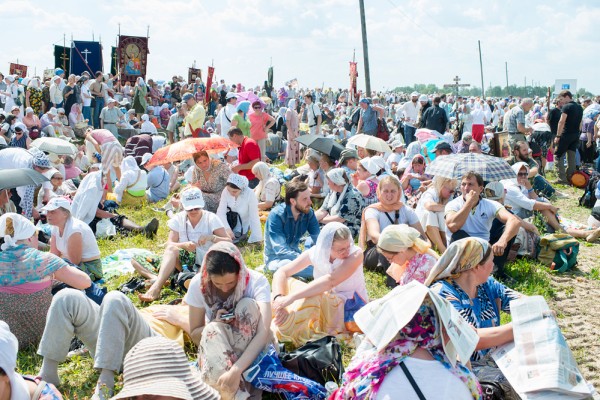
People sat and lay right on the grass, gathering strength before the next transition. The temperature of 35 degrees Celsius [95 degrees Fahrenheit] had its effect on people. According to security services, about 2,000 people asked for assitance. Ambulances stood along the entire path of the procession.
Olga, the mother of little Lisa, said that she tries to walk with all the religious processions she finds out about: “We find out about a procession and we go. So we just had to participate in this procession to the Venerable One.”
On the question of how the child feels during this long journey in the heat, the mother answered: “She’s just fine! After all, we go with God’s help! And people help too: someone helps to carry her, others give her treats. We have everything, but people still wish to give her treats.”
The next stop is the final destination: Annunciation field.
Another moleben was served here.
After this, Patriarch Kirill said that for many, this procession was truly something special, because it was not simply a church procession or march, but a procession that was accompanied by unceasing prayer. “We believe that the prayer during this procession reaches and reached the Throne of God, and that St. Sergius, our abba, has heard it. But if you recall the distant past, it was common for people to walk to Sergiev Posad from the city of Moscow. We passed a small part of the path that our pious ancestors undertook, but we could feel great grace in our hearts. And what actually took place? Nothing in particular. People of the twenty-first century, living in relative or even complete comfort, decided, despite the heat, to walk. Someone thinking in rational terms might say: why was this necessary? It was necessary because it is in ascetic struggle [podvig] that involves not only the soul, but also the body, that our spiritual strength is tested. In response to this ascetic struggle, the Lord will hear our prayer and grant us what we ask. This is why we perform full prostrations, this is why we keep the fast, this is why we go on kilometers-long processions, and this is why we stand through fairly prolonged divine services. Because God accepts our little physical sacrifice, our small contribution, and gives us what we ask in return. Let us pray today and in all the days to come to St. Sergius, that he might raise our prayers to the Throne of the Almighty: for our people, for our entire historical Fatherland, for the Russian land, and for our Church, that he might preserve it in oneness and keep it from enemy forces.”
“Let us also pray for those who perished yesterday in the Moscow Metro. In our capital today is a day of mourning. I know that today very many people are remembering those who perished. Let us also pray for the spiritual and physical health of those who survived this disaster. May the Lord grant them speedy heeling, and the Kingdom of Heaven for the deceased.”
After the moleben, pilgrims were accommodated in special tents. These tents were set up for 10,000 people: those who came in organized groups from various dioceses. Next to these tents, a field was prepared for the other pilgrims: the grass was mown, a special point gave out tents, food was sold, and water tanks were erected. From July 16-19, church services will be held on these campgrounds.
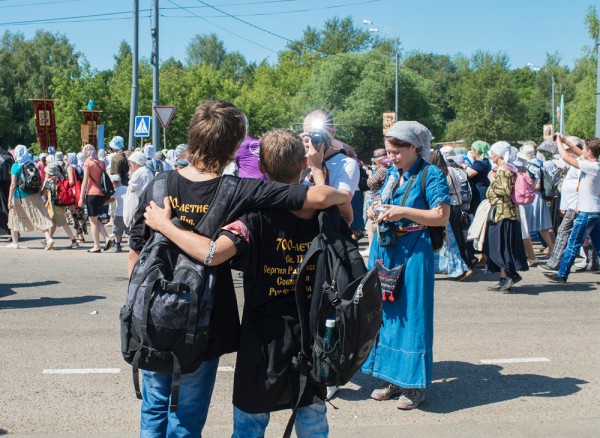
A father photographs his sons, who wear t-shirts that say: “700 Years of the Venerable Sergius of Radonezh, Uniter of the Russian land.”












